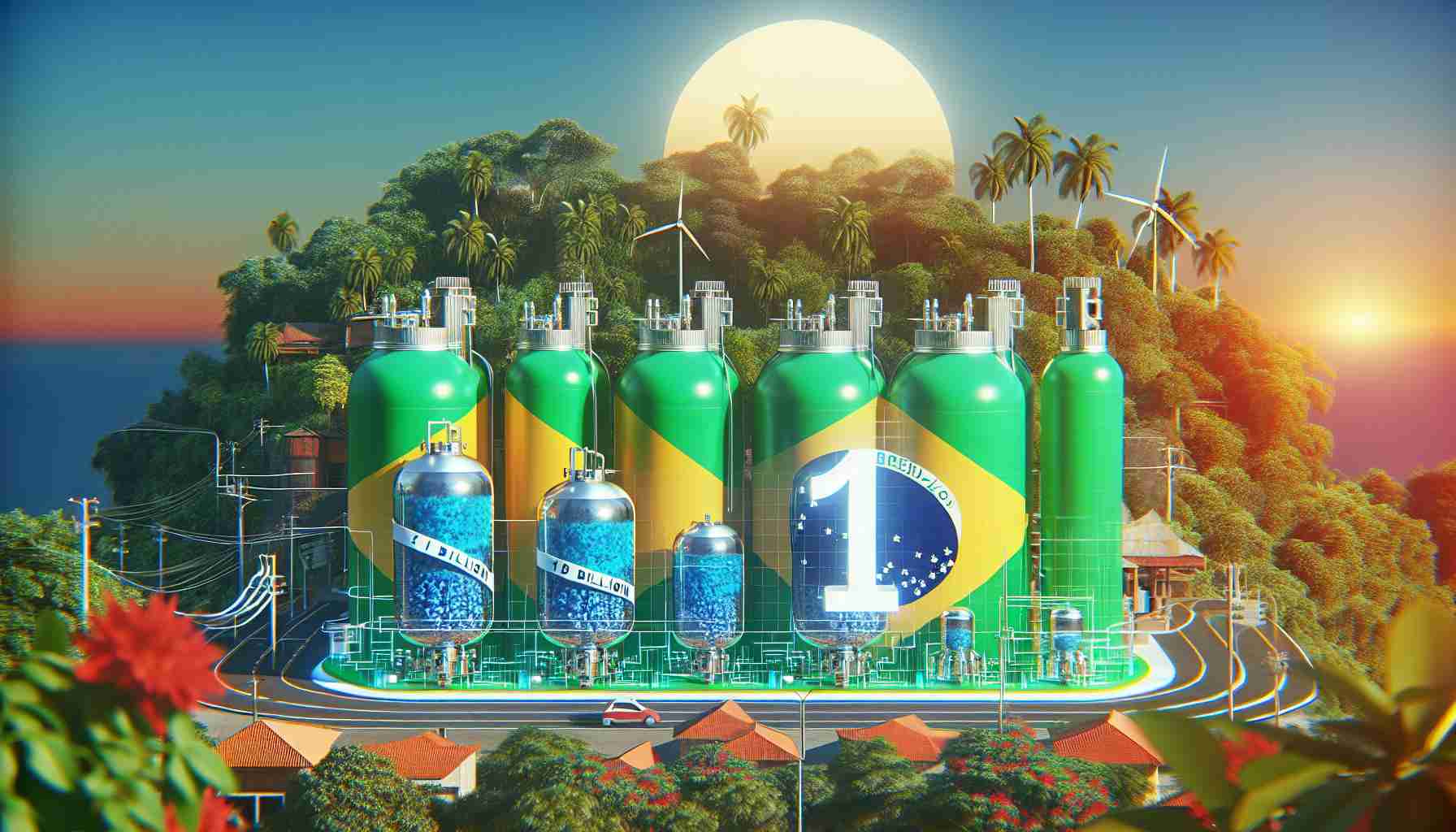Brazil is making waves in the green energy sector by selecting 12 pioneering projects to vie for a share of $1 billion in international funding. The Ministry of Mines and Energy (MME) announced that these initiatives aim to produce hydrogen utilizing various sustainable sources such as wind, solar, ethanol, and biomass, with potential outputs ranging from 1,000 to 350,000 tonnes annually.
After analyzing 70 proposals from all corners of the nation, the MME focused on both technical feasibility and financial viability, evaluating the projects’ potential applications. The finalists will be invited to refine their plans, with those deemed most promising set to compete for resources from the Climate Investments Funds – Industry Decarbonization (CIF-ID). This initiative is tailored to assist heavy-emitting industries in developing nations with their decarbonization efforts.
A key figure at the MME underscored the significance of these low-carbon hydrogen hubs, highlighting their capability to drive industrial decarbonization in Brazil. The proposed hydrogen could play a transformative role in producing green steel, aluminum, fertilizers, and e-methanol, indicating a shift towards sustainable industrial practices.
In a commitment to this green initiative, the MME has also pledged $1.09 billion to advance the country’s hydrogen hub ambitions, with the CIF expected to offer low-interest financing. This strategic move positions Brazil on the cutting edge of the global clean hydrogen industry.
Brazil’s Green Energy Revolution: Pioneering Hydrogen Projects Set to Transform Industry
Brazil is leading the charge in the green energy sector, particularly in hydrogen production, after the Ministry of Mines and Energy (MME) recently shortlisted 12 groundbreaking projects to compete for a substantial pool of $1 billion in international funding. These ambitious initiatives are designed to harness hydrogen from a variety of sustainable sources, including wind, solar, ethanol, and biomass, with anticipated production volumes ranging from 1,000 to 350,000 tonnes annually.
Key Features of Brazil’s Hydrogen Initiatives
1. Diverse Energy Sources: The selected projects aim to utilize multiple renewable energy sources, highlighting Brazil’s rich natural resources and commitment to sustainability.
2. Technical and Financial Assessment: Out of 70 proposals reviewed, the MME emphasized both the technical feasibility and financial robustness of the projects, ensuring a focus on tangible applications and outcomes.
3. Decarbonization Efforts: The chosen projects are part of Brazil’s strategy to assist heavy-emitting industries in reducing their carbon footprints through the development of low-carbon hydrogen hubs.
Pros and Cons of Hydrogen Projects in Brazil
Pros:
– Sustainable Energy Transition: These projects represent a critical shift towards renewable energy, essential in combating climate change.
– Industrial Transformation: The hydrogen produced could significantly impact industries like steel, aluminum, and fertilizers, promoting greener manufacturing processes.
– Investment Opportunities: With $1.09 billion pledged by the Brazilian government and low-interest financing from the CIF, substantial investment is being funneled into the hydrogen sector.
Cons:
– High Initial Costs: The setup and transition to hydrogen production and utilization may involve significant initial capital investments.
– Technological Challenges: Developing efficient technologies for hydrogen extraction and usage can be complex, influencing project timelines and success rates.
– Market Adoption: The acceptance of hydrogen as a mainstream energy source will require both consumer and industrial market shifts.
Market Analysis and Future Trends
– Global Hydrogen Demand: As countries worldwide look towards sustainable energy solutions, the demand for green hydrogen is expected to soar, positioning Brazil as a vital supplier in the global market.
– Competitiveness: Brazil’s focus on clean energy solutions is likely to enhance its competitiveness on the international stage as other nations accelerate their hydrogen initiatives.
Insights into Project Implementation
The MME has set clear parameters for the short-listed projects to refine their proposals in a subsequent phase, where the most promising projects will compete for funding from the Climate Investments Funds – Industry Decarbonization (CIF-ID).
Innovations and Sustainability Efforts
Brazil’s commitment to producing green hydrogen aligns with worldwide sustainability goals, promoting a circular economy. This endeavor not only supports national environmental targets but also contributes to global climate efforts.
Conclusion
Brazil’s pioneering hydrogen initiatives represent a significant step forward in the transition towards sustainable energy. By investing massively in green hydrogen production, Brazil is positioning itself at the forefront of the renewable energy revolution, with the potential to catalyze a broader shift within heavy industries towards sustainable practices.
For more information on sustainable energy projects and innovations, visit the Brazilian Ministry of Mines and Energy.
